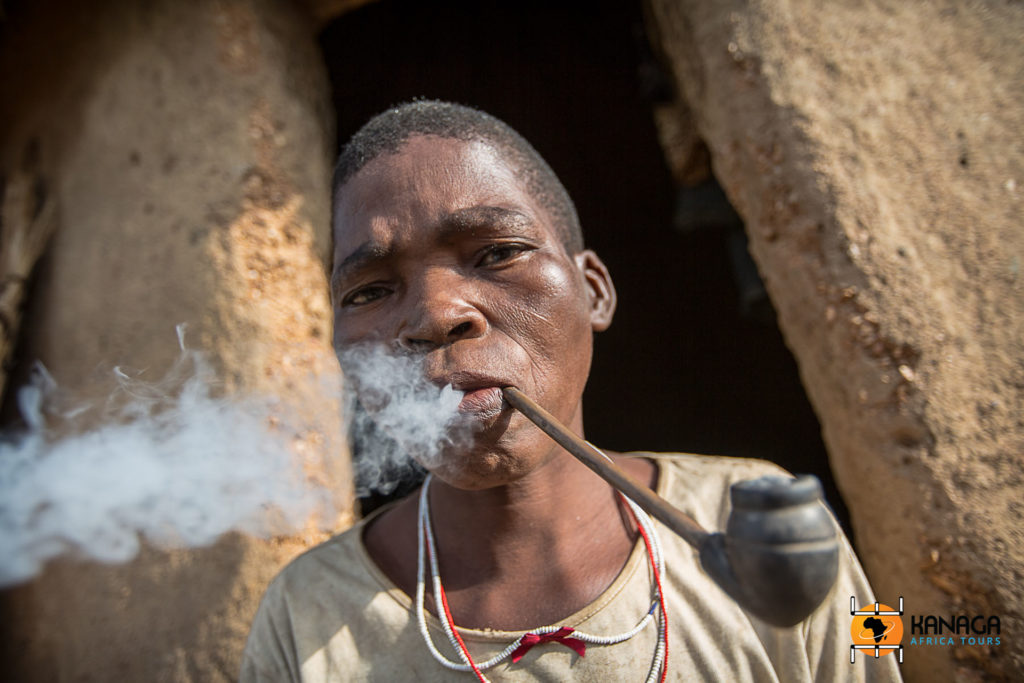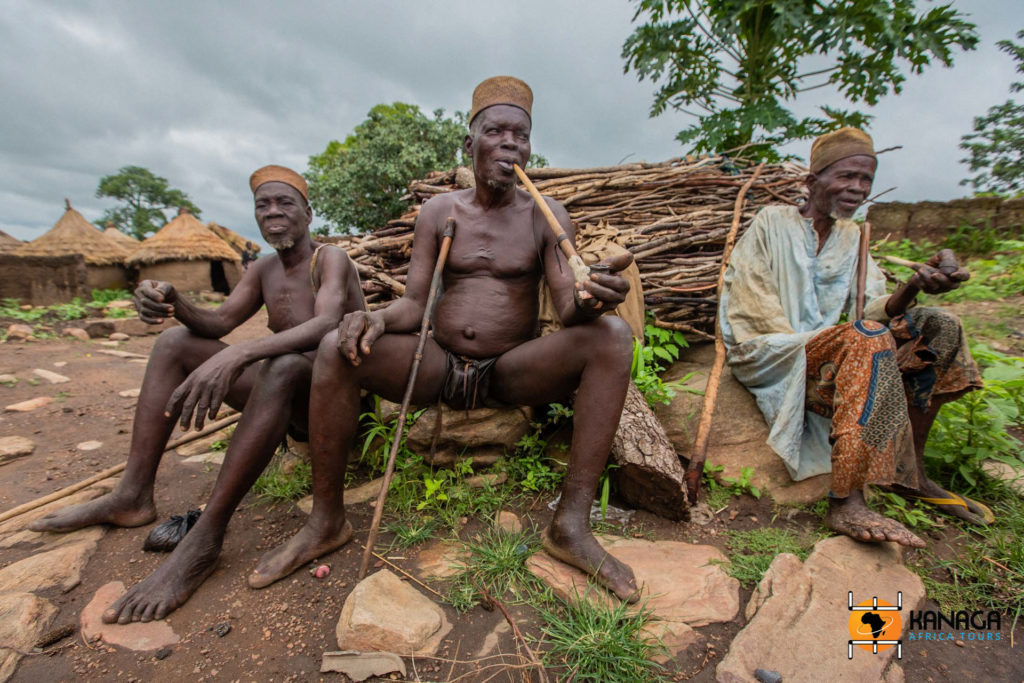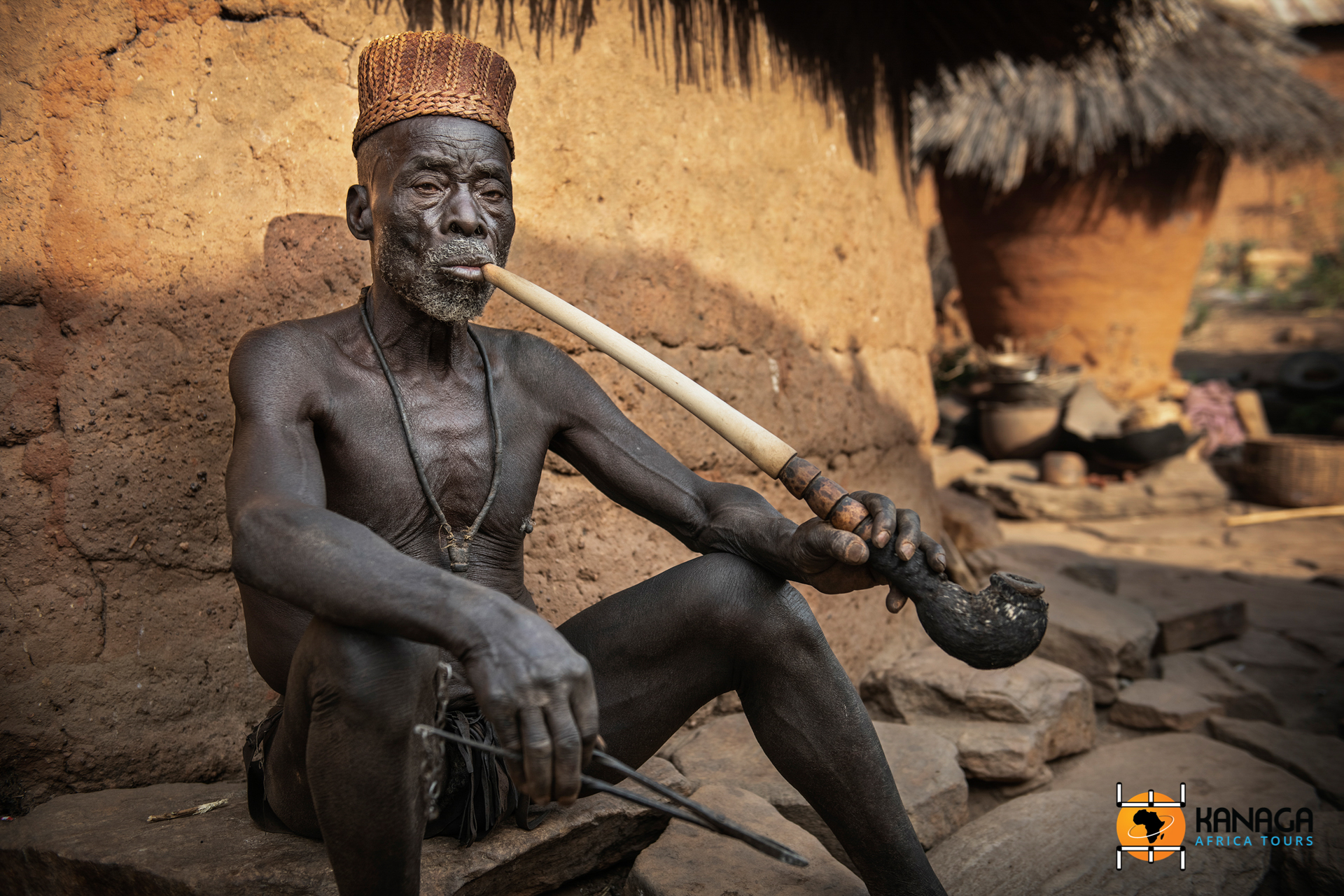© T. Redaelli
In the north of Benin, before crossing the Atakora Mountains, near the city of Djougou, the magical people of the mountains lives, the Tangba, also called Taneka, from the two main villages in the area, Taneka Coco and Taneka Beri.
They are considered a magical people because they are the custodians of the animist religion of these areas. The Varun cave is the sacred place where sacrifices are made and the future of the villages is consulted. Even today, these places are unknown to most people and are rarely mentioned in depth in travel guides. The first anthropologist to have taken an interest in them was an Italian, Marco Aime.
The Tangba are a group of ethnic groups who took refuge in the caves of these mountains about two centuries ago to escape the slave traders arriving from the south and the Islamicisation pressing from the north. Here they began to create their own social rules, which have remained unchanged to this day and preserve their cultural identity. They are the people most deeply rooted in the animist tradition and a responsible visit to a place with a strong identity like this is a truly magical and unforgettable experience.
For the Taneka, the market is a sacred place, where weapons and alcohol are not allowed. There are no days of the week, but depending on where the market is held, time is marked. Important are the ceremonies of passage of the young, in which ox sacrifices are made and circumcision performed in adulthood is seen as an initiatory test of courage, in which the circumcised must not complain of pain. The spiritual leaders are the healer elders, they wear only a leather loincloth, a headdress, a pipe and are the true depositaries of religion, the power of plants, divination and knowledge that is inherited from generation to generation. Each district of the village is still governed by its own king and his spiritual leaders.
Their villages are perched between the rocks and the bush, camouflaged from view, so much so that coming from the plain it is not possible to see them. Their traditional dwellings are mainly circular, made of clay and with a very low conical thatched roof, while the royal houses are rectangular. Every place in the village is functional to the animist religion and traditions of the Taneka. The public square where meetings are held, the houses for initiations, the sacred propitiatory trees, the traditional court and the recreation areas where people play ancient awale (a kind of dominoes).






